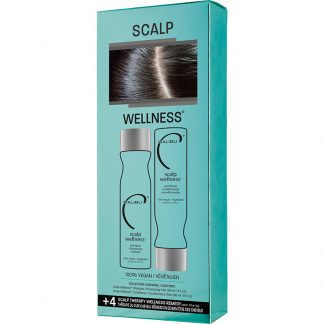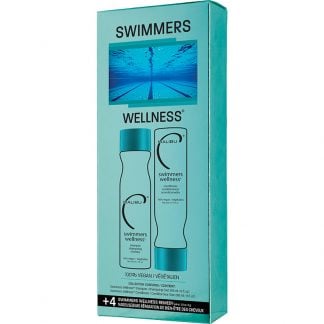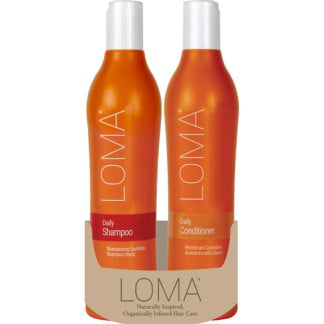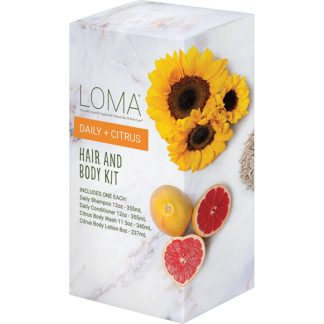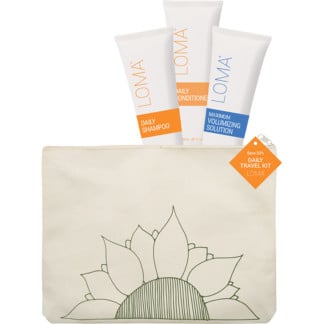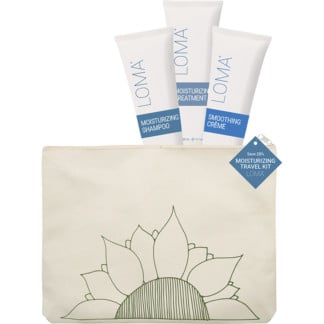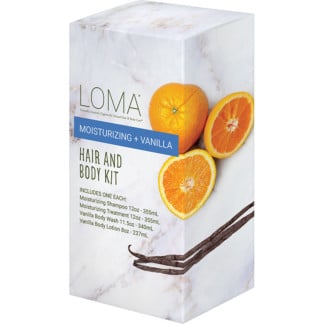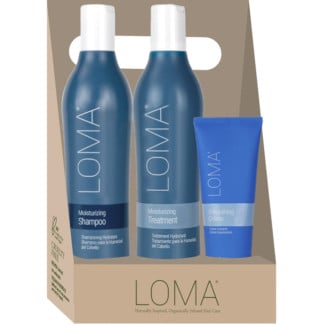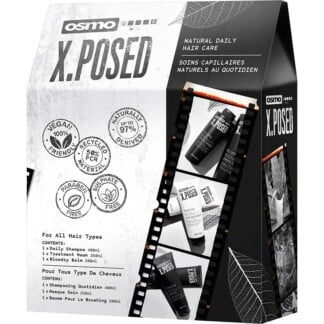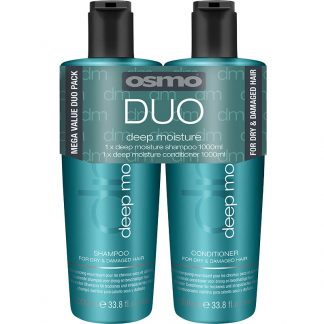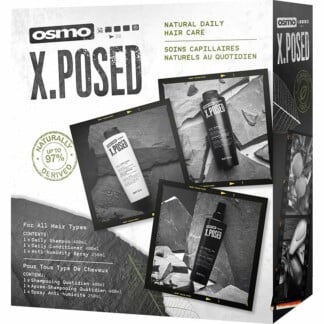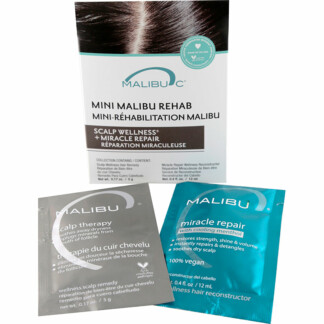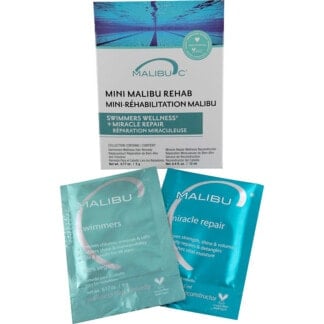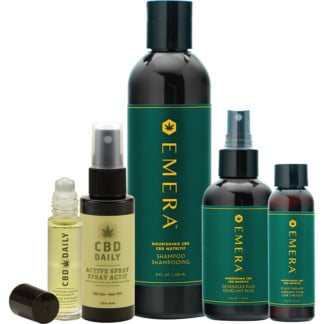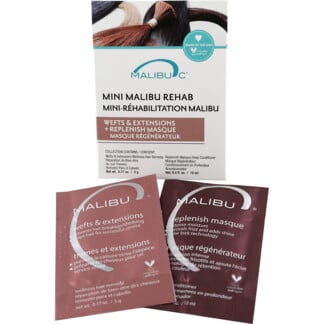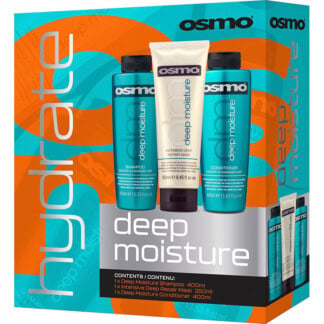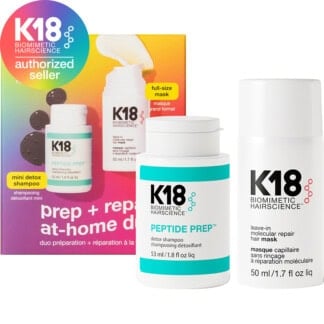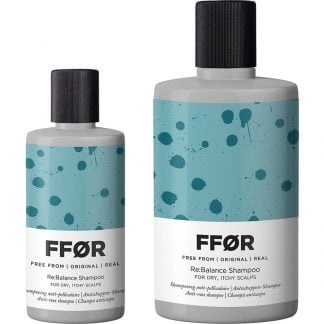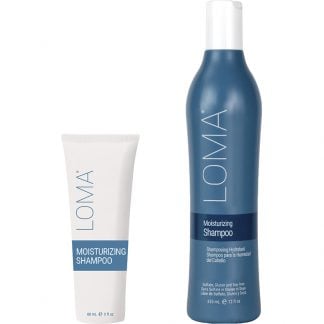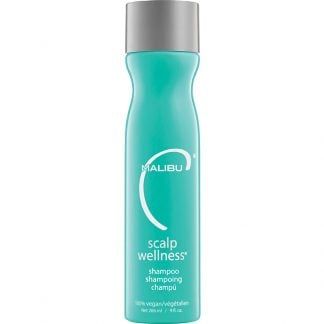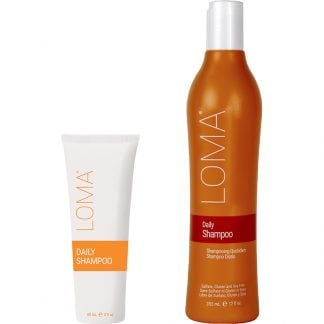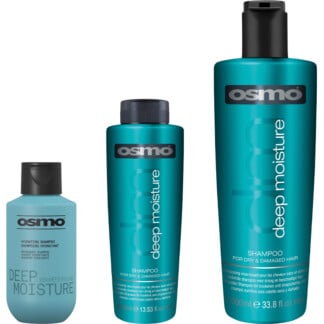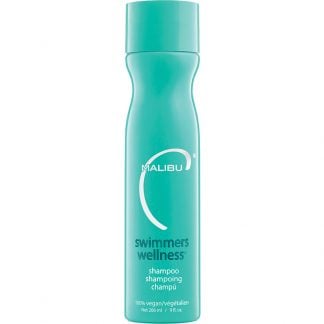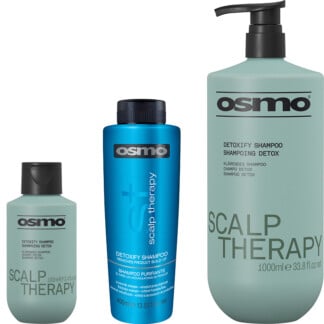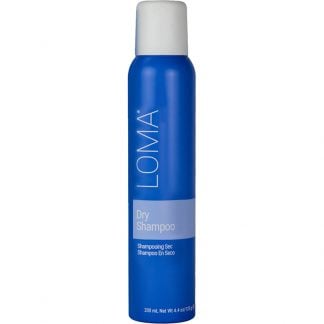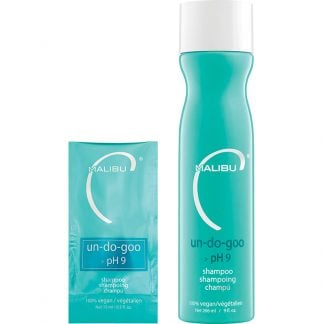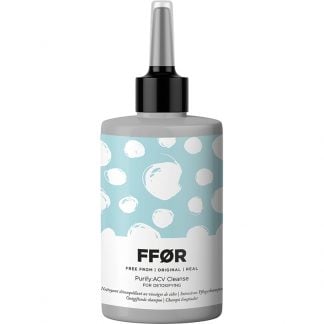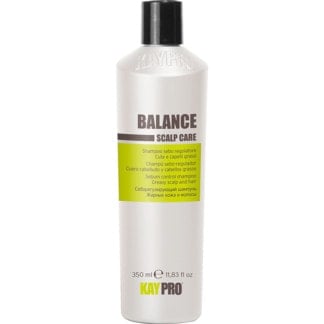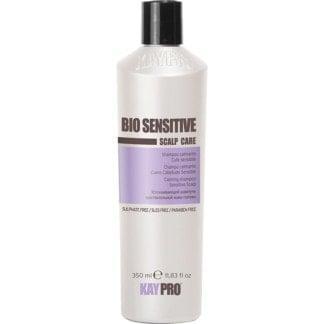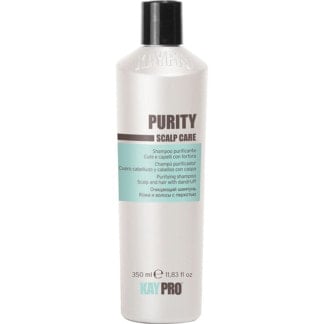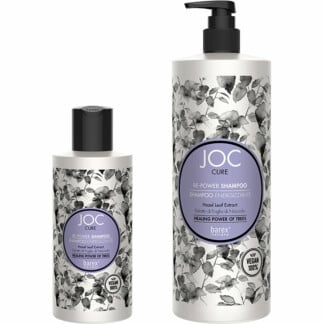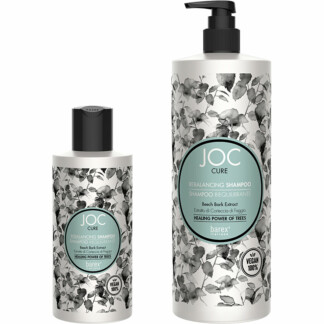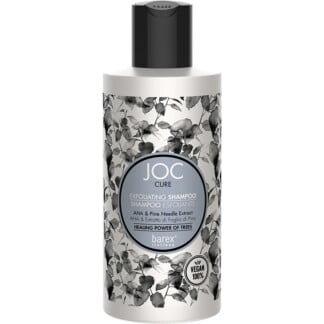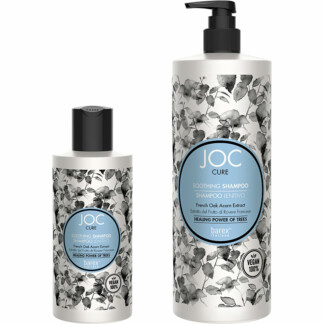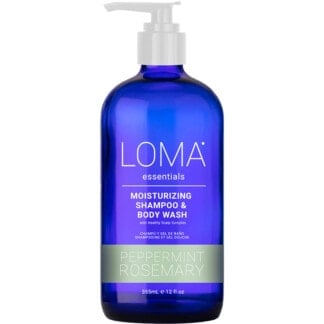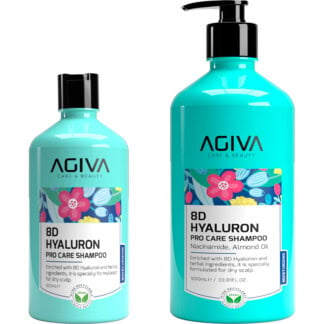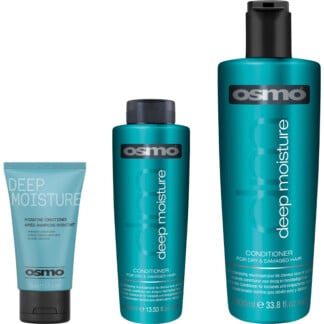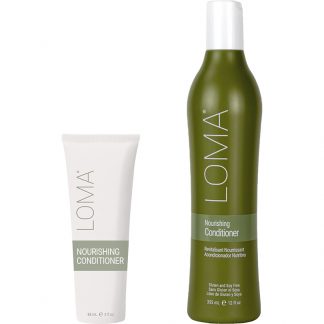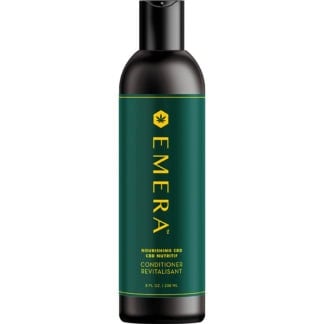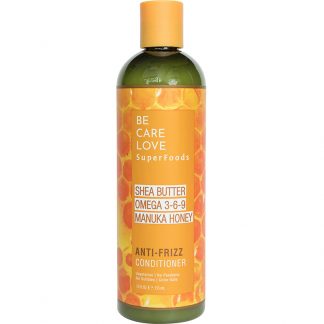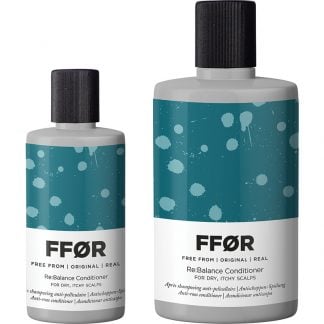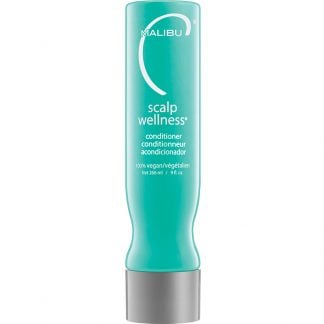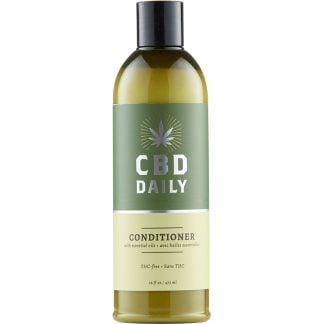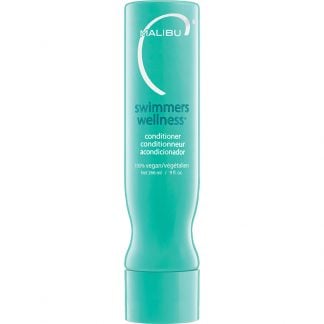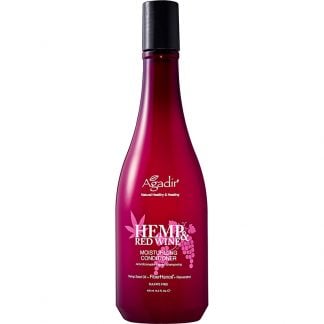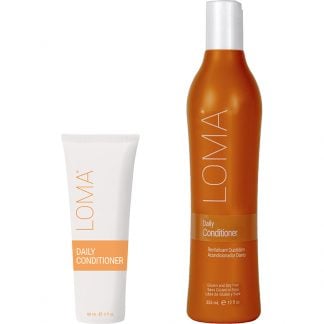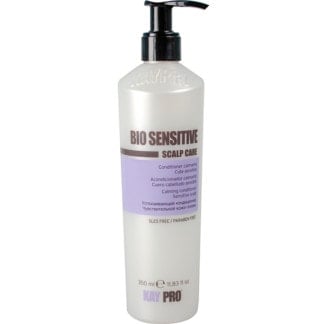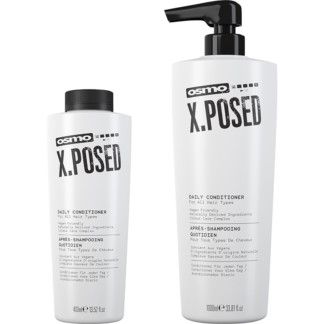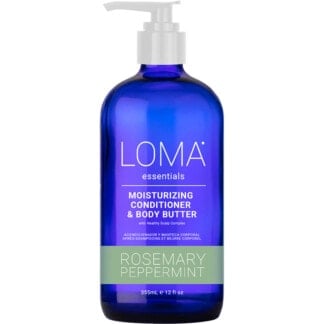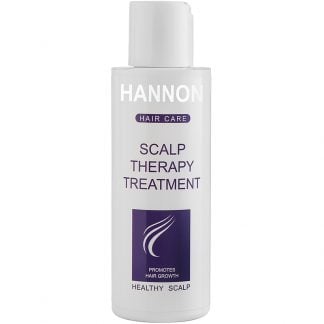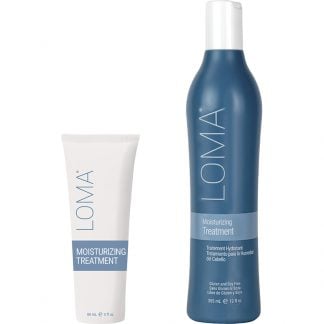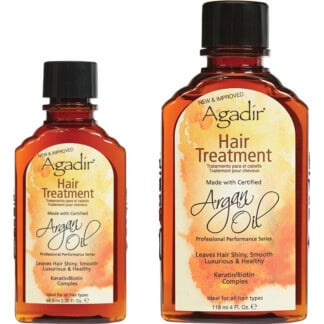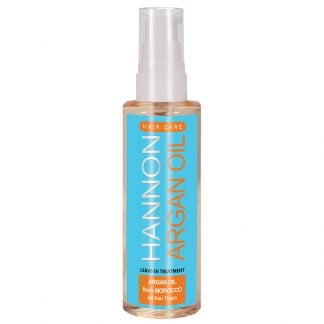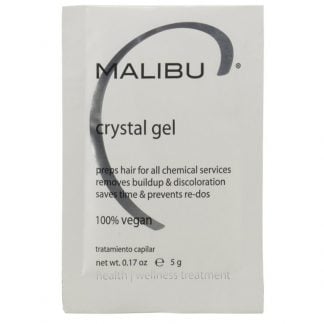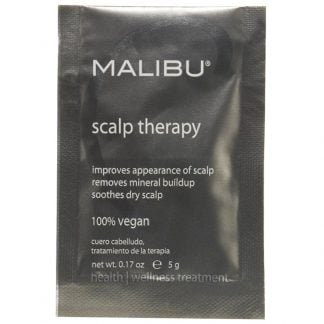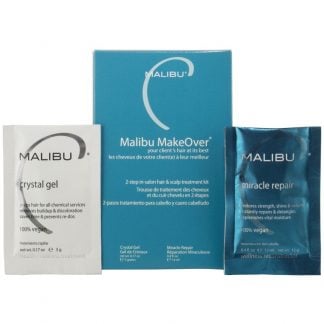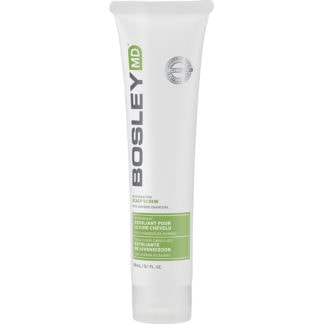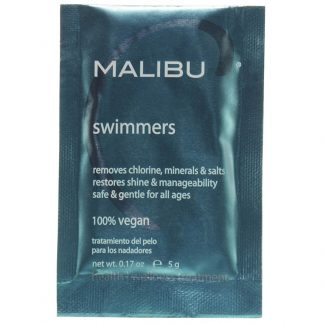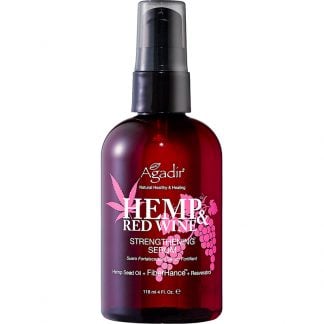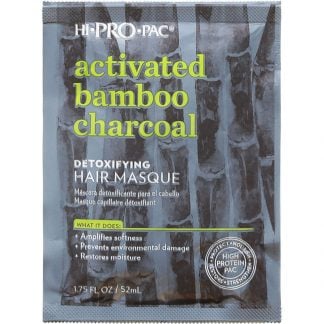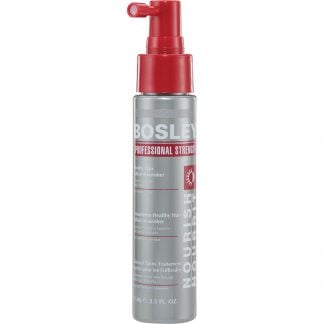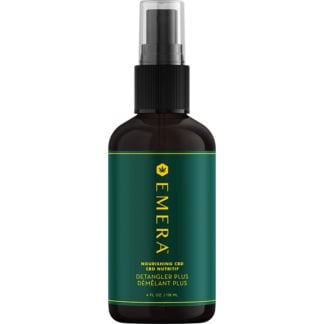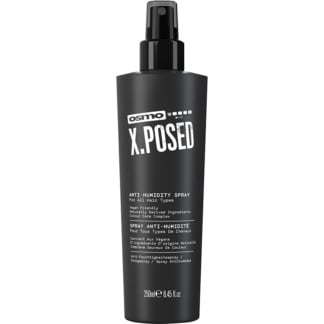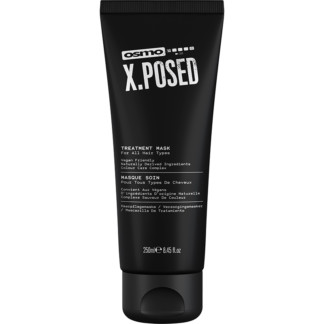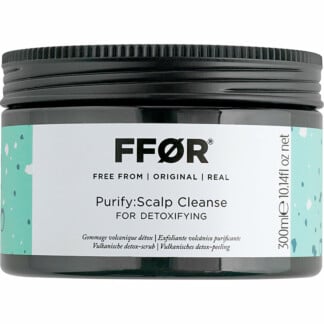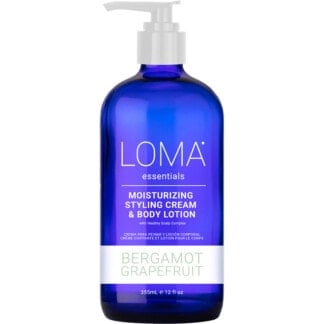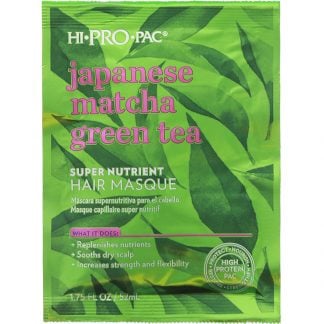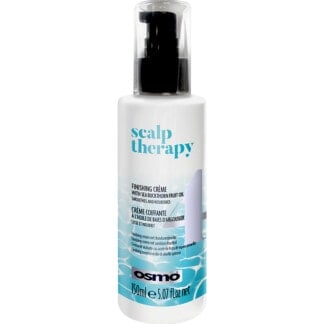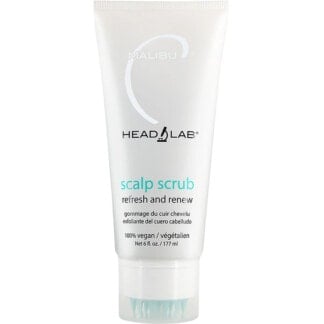
Dry, Itchy Scalp Causes and the Best Dry, Itchy Scalp Hair Treatment Products in SA
A dry, itchy scalp is among the most common of all hair complaints. It can range from mildly irritating to extremely uncomfortable and embarrassing.
Scalp irritation can have lots of different causes, from simple dryness through to fungal infection or allergic response to a hair care product. However, the underlying mechanism that leads to scalp itchiness – and therefore the best treatment approach – is usually similar.
Some conditions, like fungal infection, call for medicated treatment. In most cases though, a few weeks of using the right hair products is all that’s needed.
How to treat dry, itchy scalp
Irritation of the scalp triggers inflammatory immune cells, which attempt to repair any damage. This can lead to micro-inflammation, causing itchiness and sometimes redness.
Dryness and scalp irritation go together. This is because natural hair oils act as a protective barrier for the skin. When the balance of the oils is compromised, the scalp loses this natural defence and is more easily irritated.
The best products for treating dry, itchy scalp soothe inflammation and help restore the natural balance of moisturising oils to the scalp.
For in-depth information about what causes dryness and itching, see our dry, itchy scalp FAQ below.
Best bundles for dry, itchy scalp
Dedicated hair care bundles for treating problem scalps. Free of harsh ingredients that could cause further irritation. Soothes away irritations and establishes a healthy moisture and oil balance on the scalp.
-
Malibu C Scalp Wellness Collection, 6 Pieces
Rated 4.80 out of 5R725.00 incl. VAT Add to cart -
EMERA Nourishing CBD Shampoo & Conditioner Duo Banded Pack
Rated 5.00 out of 5R1,299.38 incl. VAT Add to cart -
Malibu C Swimmers Wellness Collection, 6 Pieces
Rated 5.00 out of 5R837.16 incl. VAT Add to cart -
LOMA Daily Duo Kit
Rated 0 out of 5R553.90 incl. VAT Add to cart -
LOMA Daily + Citrus Hair & Body Kit, 4 Pieces
Rated 0 out of 5R835.00 incl. VAT Add to cart -
LOMA Daily Trio Travel Kit with Cosmetic Bag
Rated 0 out of 5R420.95 incl. VAT Add to cart -
LOMA Moisturizing Trio Travel Kit with Cosmetic Bag
Rated 0 out of 5R420.95 incl. VAT Add to cart -
LOMA Moisturizing + Vanilla Hair & Body Kit, 4 Pieces
Rated 0 out of 5R835.00 incl. VAT Add to cart -
LOMA Moisturizing Trio Kit
Rated 5.00 out of 5R880.95 incl. VAT Add to cart -
OSMO X.POSED Treatment Gift Pack, 3 Pieces
Rated 0 out of 5R517.33 incl. VAT Add to cart -
OSMO Deep Moisture Banded Pack Duo Shampoo & Conditioner (2 x 1 Litre)
Rated 4.89 out of 5R1,100.73 incl. VAT Add to cart -
OSMO X.POSED Daily Care Gift Pack, 3 Pieces
Rated 0 out of 5R515.80 incl. VAT Add to cart -
Malibu C Mini Malibu Rehab Scalp Wellness Pack, 2 Treatment Sachets
Rated 5.00 out of 5R155.00 incl. VAT Add to cart -
Malibu C Mini Malibu Rehab Swimmers Wellness Pack, 2 Treatment Sachets
Rated 0 out of 5R155.00 incl. VAT Add to cart -
EMERA & CBD Daily Spa Collection, 5 Pieces
Rated 0 out of 5R817.65 incl. VAT Add to cart -
Malibu C Mini Malibu Rehab Wefts & Extensions Pack, 2 Treatment Sachets
Rated 0 out of 5R155.00 incl. VAT Add to cart -
OSMO Deep Moisture Gift Pack, 3 Pieces
Rated 4.78 out of 5R466.97 incl. VAT Add to cart -
K18 Prep + Repair At-Home Duo Set, 2 Pieces
Rated 0 out of 5R1,270.48 incl. VAT Add to cart
Best shampoo for dry, itchy scalp
Shampoo should be free of any harsh ingredients that could cause further irritation. It should soothe inflammation and help promote the natural repair process, by stimulating circulation and restoring moisture.
-
FFØR Re:Balance for Dry & Itchy Scalps Shampoo
Rated 4.50 out of 5R169.27 – R342.06 incl. VAT Select options This product has multiple variants. The options may be chosen on the product page -
LOMA Moisturizing Shampoo
Rated 5.00 out of 5R147.70 – R348.15 incl. VAT Select options This product has multiple variants. The options may be chosen on the product page -
Malibu C Scalp Wellness Shampoo, 266ml
Rated 4.00 out of 5R403.50 incl. VAT Add to cart -
LOMA Daily Shampoo
Rated 4.00 out of 5R139.30 – R305.00 incl. VAT Select options This product has multiple variants. The options may be chosen on the product page -
OSMO Deep Moisture Shampoo
Rated 4.86 out of 5R97.62 – R491.81 incl. VAT Select options This product has multiple variants. The options may be chosen on the product page -
Malibu C Swimmers Wellness Shampoo, 266ml
Rated 5.00 out of 5R377.33 incl. VAT Add to cart -
NEW
OSMO Scalp Therapy Detoxify Shampoo
Rated 4.77 out of 5R97.62 – R437.85 incl. VAT Select options This product has multiple variants. The options may be chosen on the product page -
LOMA Dry Shampoo, 200ml
Rated 0 out of 5R383.00 incl. VAT Out of stock -
Malibu C Un-Do-Goo Shampoo
Rated 5.00 out of 5R38.00 – R377.33 incl. VAT Select options This product has multiple variants. The options may be chosen on the product page -
FFØR Purify:ACV Cleanse Detoxify Shampoo, 300ml
Rated 5.00 out of 5R371.81 incl. VAT Add to cart -
KAYPRO Balance Shampoo for Oily Scalp/Hair, 350ml
Rated 4.67 out of 5R214.50 incl. VAT Add to cart -
KAYPRO Bio Sensitive Shampoo for Sensitive Scalp Skin, 350ml
Rated 4.50 out of 5R223.37 incl. VAT Out of stock -
KAYPRO Purity Shampoo for Scalp & Hair with Dandruff, 350ml
Rated 5.00 out of 5R217.50 incl. VAT Add to cart -
JOC Cure Re-Power Shampoo
Rated 5.00 out of 5R237.63 – R522.75 incl. VAT Select options This product has multiple variants. The options may be chosen on the product page -
JOC Cure Rebalancing Shampoo
Rated 4.67 out of 5R223.53 – R497.06 incl. VAT Select options This product has multiple variants. The options may be chosen on the product page -
JOC Cure Exfoliating Shampoo, 250ml
Rated 0 out of 5R193.56 incl. VAT Add to cart -
JOC Cure Soothing Shampoo
Rated 5.00 out of 5R214.80 – R511.72 incl. VAT Select options This product has multiple variants. The options may be chosen on the product page -
LOMA Essentials Moisturizing Shampoo & Body Wash with Healthy Scalp Complex, 355ml
Rated 0 out of 5R494.00 incl. VAT Add to cart -
Agiva 8D Hyaluron Pro Care Shampoo for Dry, Weak & Brittle Hair & Scalp
Rated 5.00 out of 5R180.00 – R262.50 incl. VAT Select options This product has multiple variants. The options may be chosen on the product page
Conditioner for dry, itchy scalp
Opt for a conditioner that’s calming and hydrating, but not too oily. A heavy, oily residue could interfere with natural sebum production.
-
OSMO Deep Moisture Conditioner
Rated 5.00 out of 5R97.62 – R609.47 incl. VAT Select options This product has multiple variants. The options may be chosen on the product page -
LOMA Nourishing Conditioner
Rated 0 out of 5R166.70 – R576.12 incl. VAT Select options This product has multiple variants. The options may be chosen on the product page -
EMERA Nourishing CBD Conditioner, 236ml
Rated 0 out of 5R284.85 incl. VAT Add to cart -
Be Care Love SuperFoods Anti-Frizz Conditioner, 355ml
Rated 0 out of 5R229.50 incl. VAT Add to cart -
FFØR Re:Balance for Dry & Itchy Scalps Conditioner
Rated 5.00 out of 5R164.60 – R297.35 incl. VAT Select options This product has multiple variants. The options may be chosen on the product page -
Malibu C Scalp Wellness Conditioner, 266ml
Rated 0 out of 5R375.00 incl. VAT Add to cart -
CBD Daily Conditioner, 473ml
Rated 0 out of 5R315.45 incl. VAT Add to cart -
Malibu C Swimmers Wellness Conditioner, 266ml
Rated 5.00 out of 5R258.50 incl. VAT Add to cart -
Agadir Hemp & Red Wine Moisturizing Conditioner, 430ml
Rated 0 out of 5R311.25 incl. VAT Add to cart -
LOMA Daily Conditioner
Rated 4.00 out of 5R140.00 – R330.00 incl. VAT Select options This product has multiple variants. The options may be chosen on the product page -
KAYPRO Bio Sensitive Conditioner for Sensitive Scalp Skin, 350ml
Rated 5.00 out of 5R240.00 incl. VAT Add to cart -
OSMO X.POSED Daily Conditioner
Rated 3.86 out of 5R213.26 – R596.55 incl. VAT Select options This product has multiple variants. The options may be chosen on the product page -
LOMA Essentials Moisturizing Conditioner & Body Butter with Healthy Scalp Complex, 355ml
Rated 0 out of 5R494.00 incl. VAT Add to cart
Best therapy treatment for dry, itchy scalp
Using the right shampoo and conditioner helps – but specially formulated treatments go further. They soothe irritation and help restore optimal scalp health.
-
Hannon Scalp Therapy Mask & Anti Hair Loss Treatment, 125ml
Rated 4.00 out of 5R372.81 incl. VAT Add to cart -
LOMA Moisturizing Treatment
Rated 5.00 out of 5R157.20 – R385.10 incl. VAT Select options This product has multiple variants. The options may be chosen on the product page -
Agadir Argan Oil Hair Treatment
Rated 4.90 out of 5R514.38 – R818.86 incl. VAT Select options This product has multiple variants. The options may be chosen on the product page -
Hannon Argan Oil Leave-In Treatment, 60ml
Rated 5.00 out of 5R264.99 incl. VAT Out of stock -
Malibu C Crystal Gel Treatment Sachet, 5g
Rated 0 out of 5R93.90 incl. VAT Add to cart -
Malibu C Scalp Therapy Treatment Sachet, 5g
Rated 0 out of 5R83.35 incl. VAT Add to cart -
Malibu C MakeOver Treatment Kit, 2 Pieces
Rated 5.00 out of 5R156.00 incl. VAT Add to cart -
Bosley Scalp Therapy Rejuvenating Scalp Scrub with Bamboo Charcoal, 150ml
Rated 0 out of 5R515.90 incl. VAT Add to cart -
Malibu C Swimmers Treatment Sachet, 5g
Rated 5.00 out of 5R90.57 incl. VAT Out of stock -
Agadir Hemp & Red Wine Strengthening Serum, 118ml
Rated 0 out of 5R458.95 incl. VAT Add to cart -
Hi Pro Pac Activated Bamboo Charcoal Detoxifying Hair Masque, 52ml
Rated 4.00 out of 5R65.87 incl. VAT Add to cart -
Bosley Renew Healthy Hair Follicle Nourisher, 74ml
Rated 0 out of 5R432.55 incl. VAT Add to cart -
EMERA Nourishing CBD Detangler Plus, 118ml
Rated 0 out of 5R284.85 incl. VAT Out of stock -
OSMO X.POSED Anti-Humidity Spray, 250ml
Rated 5.00 out of 5R252.29 incl. VAT Add to cart -
OSMO X.POSED Treatment Mask, 250ml
Rated 0 out of 5R201.09 incl. VAT Add to cart -
FFØR Purify:Scalp Cleanse For Detoxifying, 300ml
Rated 0 out of 5R447.59 incl. VAT Add to cart -
LOMA Essentials Moisturizing Styling Cream & Body Lotion with Healthy Scalp Complex, 355ml
Rated 0 out of 5R494.00 incl. VAT Add to cart -
Hi Pro Pac Japanese Matcha Green Tea Super Nutrient Hair Masque, 52ml
Rated 0 out of 5R65.87 incl. VAT Add to cart -
OSMO Scalp Therapy Finishing Crème with Sea Buckthorn Fruit Oil, 150ml
Rated 0 out of 5R360.50 incl. VAT Add to cart -
Malibu C Head Lab Scalp Scrub, 177ml
Rated 0 out of 5R675.00 incl. VAT Add to cart
Dry, itchy scalp FAQ
Most dry, itchy scalp causes involve a similar mechanism.
Dryness or other conditions begin to irritate the skin. Inflammatory immune cells try to repair the damage. This leads to “micro-inflammation”.
With further irritation, these skin cells can trigger a true inflammatory response and the body releases a compound called histamine. This causes itching and sometimes redness.
A wide range of different things can cause scalp irritation:
- simple dryness, especially with aging
- skin conditions like psoriasis and eczema (especially a type of eczema called seborrheic dermatitis)
- fungal infection such as ringworm
- overreaction to Malassezia, a yeast that naturally occurs on the scalp (and a common cause of dandruff)
- contact dermatitis – for example, sensitivity to specific ingredients in hair care products
- a range of medical conditions, from HIV to liver issues, and some medications.
Stress often plays a role in skin dryness and itching.
It can interfere with systems in the body, affecting everything from hormone regulation to sebum production and the body’s defences against naturally occurring yeasts.
It may make your immune system more prone to overreaction.
It can contribute to flare-ups of eczema or psoriasis.
It can also make you scratch more.
Excessive scratching can create an “itch cycle”. Scratching leads to more irritation, causing worse itching, causing more scratching…and so on.
Skin dryness is more common in winter. This is because of temperature extremes and the use of indoor heating, which dries out the air.
Most conditions involving itchiness tend to get worse at night.
This probably happens for a number of reasons:
- blood flow to the skin increases slightly at night, raising body temperature
- the body releases more cytokines, which increase inflammation, at night
- at the same time, the body releases less corticosteroids, which reduce inflammation
- you have fewer distractions at night than during the day, making itchiness more noticeable.
Certain nutritional deficiencies can cause (or contribute to) skin dryness and itching.
For optimal health of the scalp and hair, it’s important to have a balanced diet that includes enough:
- zinc and selenium – two minerals that play an important role in scalp and hair health
- B vitamins, including biotin and vitamin B2
- omega-3 fatty acids and vitamin A – both important for sebum production
- vitamins C and E – along with vitamin A, necessary for healthy scalp and hair
- iron – this plays a role in supplying nutrients to the scalp
- protein – required for overall hair health.
Some examples of foods that are rich in “scalp-friendly” nutrients are eggs, oily fish, nuts, spinach, sweet potatoes and lentils.
Also, stay properly hydrated. Simply drinking enough water is often overlooked as a way to prevent dry skin.
Both cause itch and flakes – but they’re not the same.
Dandruff is associated with seborrheic dermatitis, which is a type of eczema. It causes itching and flaking of the skin. This happens especially in parts of the body where there are lots of oil-producing glands, like the scalp.
Dandruff has also been associated with the immune system’s reaction to a naturally occurring yeast, called Malassezia globosa. This yeast feeds on natural hair oils.
Dandruff isn’t caused by dryness. It’s actually more common when there’s an excess of oil on the scalp.
In contrast, scalp dryness involves a lack of sebum (or sebum that’s the wrong consistency).
Usually, flakes due to dryness are smaller than dandruff flakes. It’s likely you’ll have dry skin elsewhere on the body, too.
“What can I use for dry itchy scalp?” “How do you stop an itchy scalp?” We often receive questions like these.
In most cases, the best approach to treating a dry, itchy scalp is to use a specialised shampoo and conditioner – supplemented with a dry/itchy scalp treatment once or twice a week.
Whether you’re treating dandruff or a dry scalp, the results are unlikely to be immediate.
Usually it takes two or three weeks for the scalp to respond and start to heal properly. Try your best not to scratch during this time. Scratching can cause further irritation.
The treatment products you choose should:
- be free of ingredients that could cause further irritation or allergic response
- gently remove any build-up of hair care products, excess sebum and dead skin cells
- help stimulate blood circulation in the scalp
- soothe inflammation
- moisturise the scalp to help restore a healthy skin barrier function.
If you have a severely dry or itchy scalp, it’s best to invest in professionally formulated treatments.
However, certain home remedies may help. These are among the most widely recommended:
- apple cider vinegar
Mix one part vinegar to two parts water, and rinse the scalp. Vinegar is anti-microbial (so it may combat overgrowth of yeast or bacteria) and has anti-inflammatory properties. - tea tree oil
Tea tree oil is known for its antiseptic, anti-fungal and even antibiotic effects. Mix a few drops into an essential carrier oil and massage into the scalp. - aloe vera
Aloe vera gel is soothing and moisturising, and has anti-inflammatory properties. - coconut oil
Massaging a small amount of melted coconut oil into the scalp can help keep it moisturised. Leave on for a few minutes and then wash the hair.
If you’re worried about any scalp issue, it makes sense to consult a doctor.
We recommend consulting a GP or dermatologist if you experience severe itching; raised red patterns on the scalp (which may suggest fungal infection); areas that crust or weep; or unusual hair loss.


